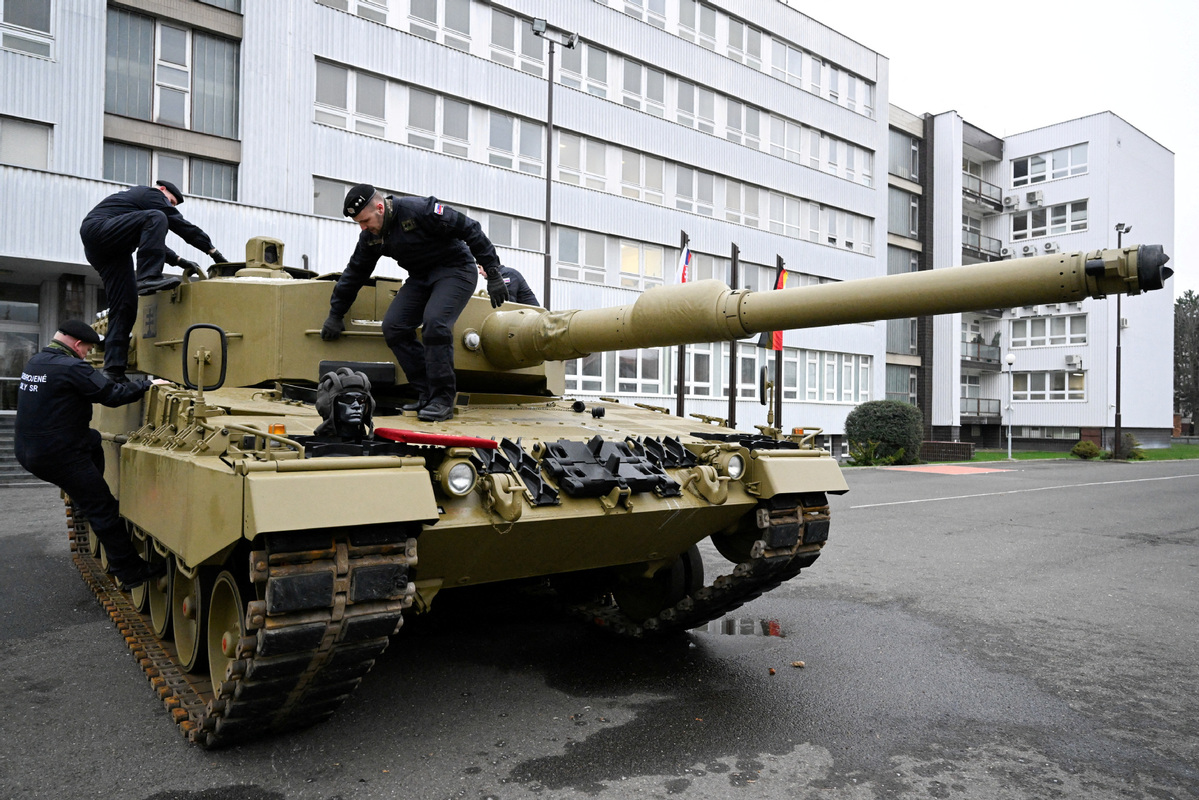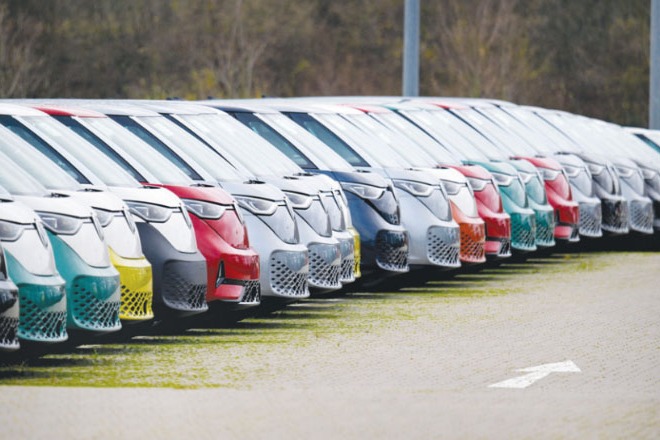Unlike West, China promotes lasting peace


Feb 24, 2022 will likely enter into history textbooks as a day that finally ended the post-Cold War global order marked by the United States' hegemony, and paved the way for the emergence of a new order, although it is too early to assess the features of that new order.
Will it be a multipolar world with fewer regulations and wars, or will it be a multipolar world where major powers will manage their competition while cooperating on common challenges such as climate change, pandemics, hunger and transnational crime?
As the Russia-Ukraine conflict continues to rage with no light at the end of the tunnel, international community members pursue different policies and strategies.
We can identify two primary approaches to the conflict: one is primarily led by the United States and the other by China. The US position is clear: the conflict should continue as long as necessary to defeat Russia militarily, or weaken it significantly and transform Russia into a mid-level power with no resources to shape global developments.
The US has rallied the European Union, NATO and its Asian allies such as Japan, the Republic of Korea, Australia and others around this goal. There are extreme voices in this camp that call for the de facto destruction of Russia advocating the dismemberment of Russia into several independent states, similar to what happened to the Soviet Union in 1991.
To achieve their primary goal of engineering Russia's military defeat, this group forced Ukraine to abandon negotiations with Russia in late March 2022, promising an indefinite flow of modern weaponry to the country to continue the fight against Russia. For this group, the war in Ukraine is an excellent opportunity to weaken Russia, creating "a second Afghanistan" for the Kremlin and potentially triggering domestic instability and even regime change in Moscow in the long run.
The US has been using the Russia-Ukraine conflict to strengthen its economic competitiveness against the EU. Recent US actions to increase the attractiveness of its economy, including adopting the Inflation Reduction Act and the CHIPS and Science Act, have led some EU businesses to relocate to the US. The US convinced the EU, especially Germany, to abandon relatively cheap Russian oil and gas while significantly increasing the American LNG exports to Europe.
The supply of large amounts of US weapons to Ukraine and the decision by the US' European and Asian allies to significantly increase their defense budgets have created new channels of additional profits for the US defense industry.
Thus, by pouring oil on the Ukraine conflict fire, the US has been pursuing several goals — to weaken Russia as much as possible, to increase its economic advantages over the EU, and to end all discussions about "European strategic autonomy" pushed forward by France in recent years. The US is using the Ukraine conflict to reinstate its leadership over the EU and its Asian allies.
In this context, the US' interest is in continuing the Ukraine conflict as long as possible. This strategy creates some risks, too, and recently several influential US think tanks, such as RAND Corporation, published reports about the potential dangers of a prolonged war for the US. However, as of now, the mainstream US position has not changed — war should continue until "Russia's defeat", which means war should continue indefinitely.
China pursues a different policy. Recognizing the territorial integrity of Ukraine, China simultaneously accepts Russia's security concerns about NATO's enlargement and the US' policy to encircle Russia with a ring of military bases. China calls for the cessation of hostilities, and the launch of negotiations between Russia and Ukraine to find a lasting solution to the crisis. While keeping its strategic comprehensive partnership with Russia going and refusing to join the anti-Russia hysteria, China continues to work with Ukraine and thus is well positioned to push forward the idea of peace.
Of course, no one is naive enough to hope that the path toward a negotiated solution will be easy. Russia-Ukraine relations started deteriorating during the "Orange Revolution" of 2004. Military activities in 2014-15; no peace, no war in Donbas in 2015-early 2022; and the start of the large-scale conflict in February 2022 have significantly poisoned bilateral relations.
For too many Russians and Ukrainians, animosity between the two countries became a norm, while the deaths and destruction deepened mutual mistrust. But the core task of responsible global powers is not to ignite new conflicts or support indefinite wars for selfish geopolitical interests. Global power status does not imply only benefits in terms of influence and economic and military might. It also implies a necessity to promote peace and stability regionally and globally.
The Ukraine conflict has become the litmus test for global powers' intentions and behavior, and China has passed it.
The author is chairman, Center for Political and Economic Strategic Studies, Yerevan, Armenia.
The views don't necessarily reflect those of China Daily.
If you have a specific expertise, or would like to share your thought about our stories, then send us your writings at opinion@chinadaily.com.cn, and comment@chinadaily.com.cn.
































